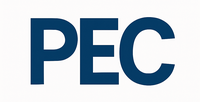ESHG calls for prudent use of WGS-based testing
Van El CG1 & Dondorp WJ4, De Wert GMWR3,4, Cornel MC1,2,3 (on behalf of the ESHG Public and Professional Policy Committee)
(1) Section Community Genetics, Department of Clinical Genetics and EMGO Institute for Health and Care Research, VU University Medical Center, Amsterdam, the Netherlands
(2) Center for Medical Systems Biology, Leiden, the Netherlands
(3) Centre for Society and the Life Sciences, Nijmegen, the Netherlands
(4) Department of Health, Ethics and Society; Research Schools CAPHRI & GROW, Maastricht University, Maastricht, the Netherlands
In their Policy Forum contribution Patient autonomy and incidental findings in clinical genomics Susan Wolf et al.[1] criticize the American College of Medical Genetics (ACMG) for giving up on well-established principles of patient autonomy and informed consent. The European Society of Human Genetics (ESHG) recently also called for more prudence.[2] The ACMG presents WGS-based diagnostic testing as an opportunity for screening. The ESHG position is that whenever possible, such testing should be targeted to genome regions linked to the indication. Wider testing requires a justification in terms of necessity and proportionality. Adding screening targets to a diagnostic test violates the necessity criterion. Imposing this extra testing upon patients who need an answer to their clinical problem is at odds with respect for autonomy. As stated by Wolf et al., people have a right to decline testing on the basis of their own assessment of burdens and benefits. However, with regard to reporting unsolicited findings, the ESHG does acknowledge that the patient’s ”˜right not to know’ may sometimes have to give way to professional responsibilities with regard to the interests both of the patient himself (who may not have foreseen and considered a specific finding) and of his close relatives (”˜duty to warn’). Where testing of children is concerned, the child’s best interest may override the parental ”˜right (not) to know’.[3] Pending further debate, we urge a more cautious attitude specifically including the patients’ and physicians’ perspectives.
[1] S.M. Wolf, G.J. Annas, S. Elias. Patient Autonomy and Incidental Findings in Clinical Genomics. Science340,1049 (2013).
[2] C.G. van El et al. Eur J Hum Genet., 21, 580 (2013).
[3] W. Dondorp, B. Sikkema-Raddatz, C. de Die-Smulders, G. de Wert, Hum Mutat., 33,916 (2012).
